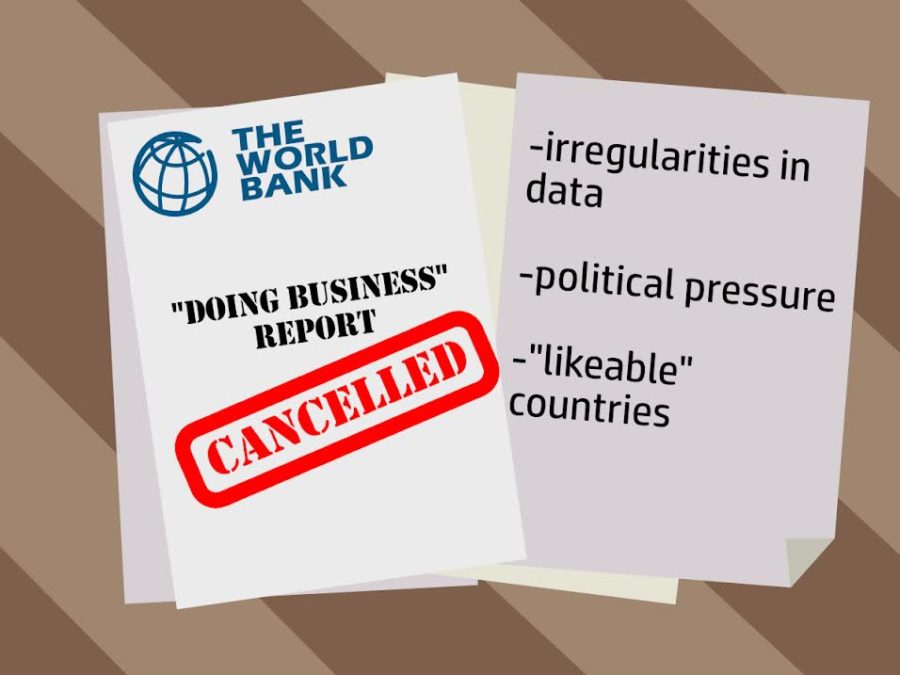World Bank cancels annual report
September 22, 2021
The World Bank serves as a vital tool for measuring economic welfare worldwide. In conjunction with the International Monetary Fund (IMF), the World Bank is responsible for publishing nearly all major economic and financial reports concerning the current and future state of the global economy. These reports provide valuable insight to both the public and governments alike and allow policymakers to make more favorable economic and financial decisions that determine the welfare of people everywhere. Recently the World Bank canceled one of its most important reports, the “Doing Business” report, over internal concerns about irregularities in their data, as well as the possibility of alterations made due to corruption. The “Doing Business” report ranks countries according to their favorability to conduct financial operations with, such as lending and trade. The report considers a country’s tax burden, political and bureaucratic systems, and other nation-specific entities to determine how “likeable” they are in conducting international business.
According to the investigation, former World Bank Chief Executive Kristalina Georgieva and former World Bank President Jim Yong Kim are at the forefront of the blame, as they allowed for political pressure to influence their rankings and data collection, furthering the interests of already powerful nations. China was the leading country that had its rankings boosted, but upon further investigation, multiple nations received favorable ranking measures in the 2018 data collection and order.
In meetings with the World Bank, Chinese officials often leveraged their power as the third-largest shareholder in the World Bank as a means to have specific data points removed from the study. Unfavorable statistics from Shanghai and Beijing were removed. China agreed to increase its capital funding into the bank, creating a system where the rich become richer through their sphere of influence.
Corruption in any capacity is always concerning, but corruption concerning the financial institutions that control the economic future of the entire world is an issue that has no room for oversight. China’s ability to influence the World Bank due to their existing influence is concerning, as it could push the world deeper into the situation in which the “Great Powers,” but specifically the great economic powers such as the United States and China, dominate the global economy to the point where other countries are incapable of building themselves independently. The financial web woven by globalization has allowed existing powers to expand their influence further than ever before. Without proper regulation through bodies like the World Bank and the IMF, emerging markets will be a thing of the past.
The solution? International governing bodies created by and for emerging markets that remove themselves from the influence of the Global North and Great Powers. Transnational networks in South America, Africa, and Southeast Asia are continually trying to build strong economies. Still, they are consistently limited by their lack of economic influence regarding ownership of the world economy. What they lack in ownership of the total amount of money in the world, however, they can compensate for in diplomacy. By converting to political and economic systems that favor government-sponsored spending and central banking, countries will be able to build economies that provide for their citizens and also interact well in international markets, allowing small emerging economies to build off of their counterparts, creating a culture in which the power shifts from the existing economic powers to a more level playing field.






















